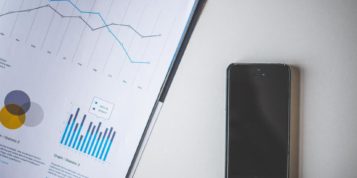A recent report from Deloitte on the app economy identified trends that, at first, appear concerning. Users are using fewer apps and 9 in 10 smartphone owners have never spent money on apps or other smartphone content. On the other hand, we know that smartphone ownership continues to grow, and users are spending more of their digital time on mobile, especially in apps.
So, the proper conclusion to take from the combination of these statistics is that people are spending more time on mobile apps but focusing on apps that come pre-installed on their smartphone plus a selected cadre of highly-useful apps. The app economy is not dying or anything close to that, though it does appear to be consolidating.
These same things are true for the greater internet – users are shopping at fewer retailers and most internet users do not pay for content. Yet, the internet economy continues to grow through e-commerce (Amazon and others), advertising (digital advertising is nearing TV spend) and subscription revenue (the New York Times has 500K+ digital subscribers). In other words, the same economic trends that led a separate butcher, baker and wine shop to consolidate into a supermarket appear to apply to the new economy as well.
The trends that are leading to more consolidation are not surprising. As with most customer goods, as apps improve, they engender customer loyalty and capture more functionality, which, by definition, results in users using fewer apps, but more heavily. I used to have eight different news apps that provided me articles about technology, politics, finance and other topics of interest.
Now, I use Yahoo News Digest for a quick summary of the day’s news and Zite, a news aggregator that builds a personalised newspaper for me from ratings I share about individual articles, for more in-depth information. I imagine both app developers are working on ways to incorporate the other’s functionality so they can capture 100% of my news-reading time.
Second, even for those that never spend money on smartphone content, many still receive ads that support the app economy. As mobile apps often deliver higher CPMs, better targeting, and fantastic opportunities for native ad units, even users that never pay still benefit the app economy and are more valuable than those same users on ad-supported desktop internet sites.
Finally, we are on the cusp of an onslaught of new hardware sensors, from fitness trackers to internet-connected thermostats and light bulbs. Due to wearable computing and the Internet of Things, apps and app usage related to these areas will similarly explode. In fact, they will likely redefine what we mean by apps – I can’t envision my wife using connected light bulbs if she has to unlock her phone, open an app and tap a few buttons to turn them on. Instead, voice controls; lock-screen commands and gestures; and security must improve.
All of this being said, there are threats to the app economy, the biggest being the consolidation that Deloitte’s study calls out. To resolve this, we need much better app discovery capabilities. Today’s app store search algorithms are analogous to the internet search engines of the late 1990’s or the on-screen guides from most cable providers. They naturally lead towards a few trusted names. Google’s search engine that allowed pages to be ranked by how many times others linked to them and AdWords were critical to enabling smaller internet sites to compete with the bigger ones.
A similar crowd-sourced app discovery engine would increase appdiversity by empowering smaller developers without large marketing budgets. If only there existed a company who both owns an app store and knows something about search…
While Deloitte’s study confirmed that the app economy, as we know it, is maturing, it has a long way to grow. While some parts can be improved, I wouldn’t bet against this part of the market just yet.






